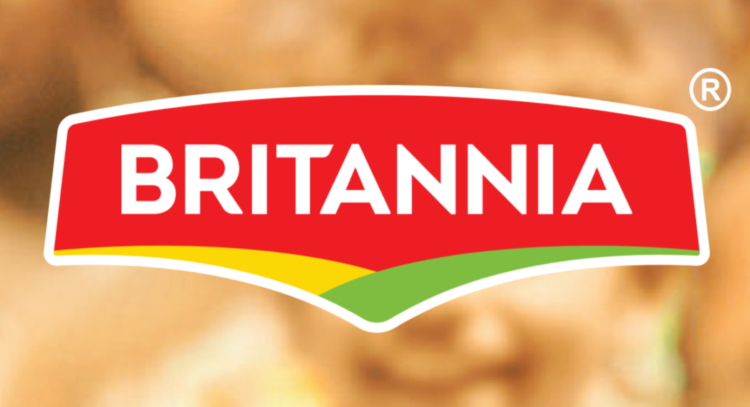The CSR projects and programs are undertaken after identifying the communities that require development.
NEW DELHI: As per Section 135 of the Companies Act, 2013 read with the rules made thereunder, Britannia Industries Limited is required to spend at least 2% of average net profit of last 3 financial years i.e., Rs. 38.57 Crores. The Company has spent Rs. 38.57 Crores on CSR activities for the financial year 2021-22.
For the Company, CSR means Corporate Sustainable Responsibility (CSR) and this has been embedded into its business model. The CSR Policy of the Company represents the continuing commitment and actions of the Company to contribute towards social development and growth.
The Corporate Social Responsibility (CSR) Committee comprises of Ness N Wadia, as Chairman and Keki Dadiseth, Dr. Ajai Puri, Dr. Y.S.P. Thorat, as Members of the Committee. The composition, powers, role and terms of reference of the Committee are in accordance with the requirements under Section 135 of the Companies Act, 2013.
During the year under review, the Committee met once on 4 January 2022.
“At Britannia, the CSR projects and programs are undertaken after identifying the communities that require development. The Company also interacts with the stakeholders to ensure that its projects are being implemented effectively.”, the company annual report said.
During the second and third wave of Covid-19, the requirement of ready to eat items emerged and SNWF distributed RTE biscuits and dairy products to the health workers, migrants, daily wage workers and other needy people in the community.
Sir Ness Wadia Foundation has distributed 10,48,073 cooked meals in Mumbai, Maharashtra. Around 8,40,000 packets of biscuits were distributed PAN India during the year 2021-22. The relief activity was continued with supply of nutrition supplementary kit to MAM (Moderately Acute Malnourished) children in the project locations. More than 450 kits were distributed for 3 months in Palghar
As a responsible organisation, the Company comprehends the need for promoting health, growth and development of children from lower socio-economic sections of society. It has taken up various activities to promote health, growth and development of children and continued to contribute towards restoration of hospitals for children and women as part of its CSR Programs during the financial year 2021-22.
Sir Ness Wadia Foundation is working to improve Health and Nutrition through ‘The Village Development Program’. The two main objectives of this project are to reduce malnutrition and ensure sustainable development in villages. The target beneficiaries of this project are children below the age of 6 years, adolescent girls, lactating mothers, pregnant women and farmers.
The key program interventions are given below:
Health Camp: Health Camps were conducted to screen the health status of target beneficiaries namely children, adolescents, pregnant and lactating women. More than 400 target beneficiaries were screened during the health camp. Counselling, awareness sessions and nutrition related activities were conducted with these beneficiaries to improve knowledge about their nutritional status.
Critical cases were referred to Wadia Hospital for further diagnosis and treatment. Nutrition Garden, Wadi Distribution and Pullet Distribution: Seed kits and other required materials to set up nutrition gardens were given along with basic training to 3,516 beneficiaries. 3,614 beneficiaries were given 7 varieties of fruit bearing plants. 10 pullets each were distributed among 324 families having SAM and MAM children to promote consumption of eggs and increase the intake of nutritious food. The increase in nutritional intake helps to combat malnutrition.
Awareness Sessions
Awareness sessions were conducted to increase the knowledge about the malnutrition and its causes and effects. 2,695 beneficiaries were made aware on topics like health, hygiene, malnutrition, menstruation, ill effects of early marriage, superstition and many more through street plays, sessions by nutrition experts and demonstration of cooking nutritious food.
Training and Capacity Building
Capacity building sessions are conducted for field coordinators on health and nutrition in order to reach out to our target beneficiaries in a very effective way.
Livelihood
383 Farmers were given training in vegetable farming and vegetable seeds were distributed to support second farming post harvesting of rice. This activity generates additional income for farmers and helps to curb migration which in turn helps families to avail the benefits provided by anganwadi which they are otherwise deprived of due to migration. 258 landless farmers were provided with alternate means of livelihood in the form of poultry farming viz., 15 pullets and 20 kg pullet feed to each beneficiary.
Water Resource Development
Water Resource Structures were constructed, repaired or refurbished to provide drinking water and water for irrigation. Around 12,000 individuals were benefitted by construction/repair and refurbishment of 12.24 km of canals, 3 check dams, 6 wells, 36 hand pumps and 3 farm ponds. Solar pumps are installed at 3 villages to lift water from nearby water resources and provide water to around 1,500 community members. 101 pregnant and lactating women were given water wheels to reduce their hardship of fetching water from water source located far from village for their daily needs. 15 water filters were provided to schools, anganwadis and primary health centres (PHCs) to make provision for clean drinking water to 450 individuals. 2 community ROs were also set up benefitting 900 villagers. Rainwater harvesting systems were constructed at 58 anganwadis to ensure recharge of ground water.
Intervention under infrastructure
Infrastructure which caters to the beneficiaries are constructed, repaired or refurbished as per the need to provide better facilities to the villagers. 10 anganwadis were repaired and refurbished which provides nutrition benefit to 1,258 beneficiaries. 5 schools were repaired and refurbished providing better education facility to 347 students. 5 sanitation units were repaired and refurbished providing sanitation facilities to 962 students. 1PHC was repaired and refurbished which have footfall of 40-50 patients every day. To ensure safety at night, 28 solar streetlights were installed benefitting more than 8,000 villagers.



























